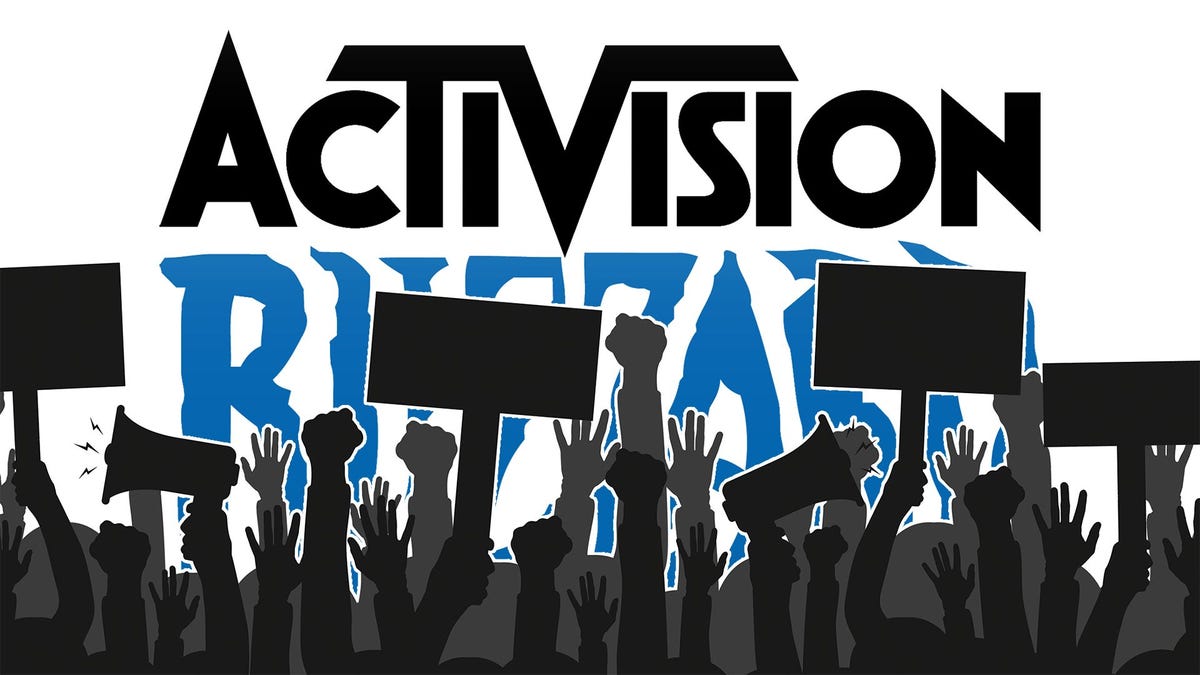You’ve heard of binge watching, but have you ever considered binge reading? Sure, there’s something to be said for parceling a doorstopper novel into tidy, respectable chunks, but beyond that project lies another reading experience entirely: the one-sitting novel.
The one-sitting novel isn’t just something you can read in one afternoon—it’s something you should read in one afternoon. The one-sitting novel is perfectly structured to be consumed as a complete, transporting experience, whether that’s a breakneck ride through a thrilling narrative, or a slow, dreamy fog that envelops your mind as you page through. The best one-sitting novels sweep you off your feet, whisking you away to another world, only to deposit you back on your doorstep a few hours later, dazed and changed, seared in the fire of something new.
For the sake of argument, we capped our choices at 250 pages—just enough to deliver a truly immersive experience, but not so many pages as to bleed over into the next day of reading. From the blisteringly contemporary to the classic, the lighthearted to the weighty, here are our favorite one-sitting novels. Go ahead—get lost in them.
The Employees, by Olga Ravn
Transporting and ephemeral, The Employees accomplishes more in 136 pages than some novels do in 500. On a ship hurtling through deep space, humans and humanoids work together under a rigid hierarchy, pitted against one another by a nameless corporation. On a planet called New Discovery, crew members retrieve mysterious objects that exert a strange power over man and machine alike, awakening dreams, memories, and longing. Humans mourn their lost connections on Earth, thousands of light years away, while their humanoid colleagues yearn for connections they’ve never known. Constructed as a series of witness statements from the crew, gathered after tensions with their oppressive employer boil over, The Employees is an unforgettable novel about the psychic costs of labor under capitalism. Yet it also reaches deeper to explore science fiction’s animating questions: What makes us human?; Which of us is more human, person or robot?; Is a synthetic life still a life? Dreamlike and sensual, The Employees shouldn’t be missed.
Luster, by Raven Leilani
Raw, racy, and utterly mesmerizing, Luster is a short bildungsroman to get lost in. Twenty-something Edie is drifting ever closer to self-destruction; after losing her dead-end admin job in a publishing office rife with racism and misogyny, she turns to delivering takeout by bike in order to make the rent on her squalid Bushwick apartment, where she spends her nights growing in fits and starts in her development as a painter. Meanwhile, she’s sleeping with a much-older man in an open marriage, whose carefully constructed boundaries come crashing down when his enigmatic wife invites a destitute Edie to stay in their suburban home. There Edie meets Akila, the couple’s recently adopted Black daughter, to whom Edie grows close when she realizes that she may be the only Black woman in this young teenager’s life. Leilani brings painterly precision and biting humor to a feverish novel where each pyrotechnic sentence is a joy to experience. Give yourself over to its dreamlike miasma.
No One Is Talking About This, by Patricia Lockwood
Never has the experience of being Extremely Online been more viscerally rendered than in No One Is Talking About This, Lockwood’s astonishing novel about a viral celebrity who travels the world on the back of her popular tweets. It takes a family tragedy to reawaken her to the world beyond her screen, where she’s reminded that the internet can’t contain the wonders and horrors of real life. Written in a style at once lyrical and fragmentary, brimming with memes and texts, this novel locates both the profane and the profound in how we live online. No One Is Talking About This will frighten you, implicate you, and scrape your guts out, in the best way possible.
Read a profile of Lockwood here at Esquire.
Infinite Country, by Patricia Engel
Avid Reader Press / Simon & Schuster
Beginning unforgettably with a young girl’s high-octane escape from a Catholic reform school, Engel’s short but sweeping novel gives voice to three generations of a Colombian family torn apart by man-made borders. When Elena and Mauro move their children to the United States, the cruelty of deportation sunders their family, but never their bonds. Gorgeously woven through with Andean myths and the bitter realities of undocumented life, Infinite Country tells a breathtaking story of the unimaginable prices paid for a better life, all in 208 compact pages.
Nightbitch, by Rachel Yoder
In this unforgettable debut novel, Yoder delivers an outrageous Kafka-esque parable about the mundanity and monstrosity of early motherhood. Our protagonist, an artist turned stay-at-home parent known only as “the mother,” has become a husk of herself after two years of raising a toddler without the support of her husband, who’s all-too often away on weekly business trips. Soon, her mind and body begin to change; she grows dense patches of hair, her teeth sharpen, and she develops canine impulses. It’s only through her surreal transformation into “Nightbitch” that she experiences liberation from the pressure cooker of motherhood. Yoder touches on a kaleidoscope of themes, from the towering inferno of female rage to the loss of self that accompanies motherhood, all of it undergirded by feral, ferocious scenes of our heroine feasting on rabbits and pissing on the lawn. Nightbitch will grab you by the scruff and refuse to let go.
Read an exclusive interview with Yoder here at Esquire.
Pizza Girl, by Jean Kyoung Frazier
In Frazier’s explosive debut novel, our nameless narrator is eighteen, pregnant, and feeling adrift as she stumbles through her days as a Los Angeles pizza delivery driver, all the while grieving the death of her alcoholic father and avoiding the smothering ministrations of her loving mother and boyfriend. Everything changes when she delivers a peculiar order to a suburban housewife, who becomes the locus of a psychosexual obsession with dangerous consequences. In just 193 wry, propulsive pages, Pizza Girl hurtles through the dark waters of obsession and addiction, as our dysfunctional Pizza Girl downs Miller Lites while studiously avoiding any semblance of forward motion. Yet at the same time, the novel bristles with biting wit and optimism, each page a feast of Cheeto-fingered heart, humor, and lyricism.
Jesus’ Son, by Denis Johnson
From an American master comes a landmark book that launched decades of pale imitations: Jesus’ Son, a glittering stick of dynamite thrown into the literary firmament. In this short, luminous novel, we pal around with a man known only as Fuckhead, a sometimes-homeless, sometimes-underemployed drug addict stumbling down the path to redemption in the company of fellow lost souls. Exultant in tone, studded with dazzling moments of transcendent beauty, Jesus’ Son is an unforgettable novel—one you’ll spend your whole life wishing you could read for the first time all over again.
Red at the Bone, by Jacqueline Woodson
One of our most empathetic writers turns her full-hearted eye on an intergenerational Brooklyn story of two families from different social classes who are bound forever by a teenage pregnancy. Lyrical, dreamy, and brimming with compassion for her characters, Woodson explores the forces that divide us and the ties that bind with her signature extremity of feeling. Let the novel wash over you in a glorious one-day miasma.
Annihilation, by Jeff VanderMeer
In this spectacular climate novel, VanderMeer sets his sights on Area X, a lush and remote landscape that has turned against humankind, producing brain-bending effects on scientists who venture into the territory to investigate. As the secrets of Area X reveal themselves to the scientists, ecological and psychological consequences pile upward. Dreadful, Lovecraftian, and downright existential, this novel is a dizzying descent into a metaphysical wilderness leagues away from our lived reality. If you let VanderMeer pull you in for one whirlwind afternoon, expect to emerge dazed and changed.
Weather, by Jenny Offill
Compact and wholly contemporary, Jenny Offill’s third novel sees a librarian find deep meaning and deep despair in her side gig as an armchair therapist for those in existential crisis, including liberals fearing climate apocalypse and conservatives fearing the demise of ‘American values.’ As she attempts to save everyone, our protagonist is driven to her limits, making for a canny, comic story about the power of human need. Offill has a kinetic mind—one that hops, skips, and free associates through troves of information. It shows on the page, with Weather hewn from abundant white space into crisp paragraphs, each one functioning as a gemlike koan. Surrender an afternoon to the singular experience of marinating in Offill’s mind—you won’t regret it.
Where Reasons End, by Yiyun Li
In this short, singular novel, centered on a grieving mother and the teenage son she lost to suicide, Li transports us to a liminal place beyond space and time, where mother and son can speak freely. In that boundless void, their imagined conversation is far-ranging and free-flowing, touching everything from the limits of language to the profound discontents that drove the son to suicide. In one poignant scene about language’s refusal to capture grief, Li writes, “Words fall short, yes, but sometimes their shadows can reach the unspeakable.” Written in one furious draft after Li’s own teenage son died of suicide, Where Reasons End reaches that unspeakable place, at once a devastating read and an awe-inspiring glimpse into the inimitable mind of a peerless writer.
Written on the Body, by Jeannette Winterson
Keats longed for a brighter word than bright; Written on the Body calls for a more luscious word than lush. This revelatory crossbreed of prose poem, erotic ode, and philosophical text unspools like silk, offering surprises at every turn. What begins as the story of an affair—the gender-ambiguous narrator falls for a dyi ng married woman—hurtles into an arousing dreamscape of exaltation and loss. Sensual and erotic, it’s best consumed in one fevered read.
The Crying of Lot 49, by Thomas Pynchon
The shortest novel ever written by the legendarily long-winded Pynchon, The Crying of Lot 49 is a turbulent ride through the misadventures of California housewife Oedipa Maas, who finds her run-of-the-mill life upended when she is named the executor of a staggeringly wealthy former lover’s estate. Dogged by a cast of bizarre characters, Oedipa is thrust into a web of conspiracy and confusion, featuring mysterious symbols, the United States Postal Service, and no shortage of LSD. Read The Crying of Lot 49 in one sitting, and if you feel hopelessly disoriented, don’t fret—that’s exactly what Pynchon wants.
Autobiography of Red, by Anne Carson
In this stunning novel in verse, mythology and reality collide in the volcanic story of Geryon, a winged red monster killed by Herakles in Greek legend, but reimagined in Carson’s telling as a tormented teenage monster smitten by Herakles the drifter, who becomes the subject of his photography before leaving without a backward look. Years later, Herakles and Geryon collide again, forcing Geryon to confront the pain of their parting and the return of his muse. At once a poignant exploration of love, loss, and loneliness, so too is this novel an ode to the long and winding journey of an artist’s becoming. Strange and sexy, with glimmeringly sharp edges, Autobiography of Red is a singular reading experience that could only come from a mind as singular as Carson’s.
The House on Mango Street, by Sandra Cisneros
Cisneros’ inimitable coming-of-age classic has sold over six million copies, been translated into over twenty languages, and is taught in high school classrooms around the globe—with good reason. In just 103 luminous pages, Cisneros unspools a year in the life of 12-year-old Esperanza Cordero, a big-dreaming Chicana girl growing up in an impoverished Chicago neighborhood. Told in luscious vignettes, Esperanza’s journey as a fledgling writer stares head-on into the darknesses of racism, patriarchy, and domestic violence, yet The House on Mango Street is also a poignant testament to the enduring power of place in shaping our becoming.
Ghost Wall, by Sarah Moss
In this mythic and eerie novel, Moss transports us to rural Britain, where teenage Silvie and her family embark on a two-week archaeological project to live as their Iron Age ancestors did, with only rudimentary tools and limited knowledge. Silvie’s father, a disgruntled bus driver, has for years forced his family into cultural isolation through his obsession with the Iron Age way of life. Ancient Britons built “ghost walls” out of stakes topped with skulls to ward off invaders, but when Silvie and her group build their own ghost wall, they form a spiritual connection to the past, which soon takes a disturbing turn. In just 152 sharp, chilling pages, Moss delivers a stunning allegory about contemporary isolationism, criticizing the consequences that come with longing for “the good old days.”
Convenience Store Woman, by Sayaka Murata
Slim, hilarious, and spectacularly strange, Convenience Store Woman is the story of Keiko, a thirty-something misfit who has found purpose and joy in managing a Tokyo convenience store for almost two decades. Smart but socially awkward, Keiko is subjected to derision from her loved ones, who pressure her to find a husband and a “real” job as she approaches forty. Yet as Keiko considers knuckling under to their demands, the consequences of forgoing her true self spiral upward, making for a funny, heartfelt story about the triumph of individualism over conformity.
Wide Sargasso Sea, by Jean Rhys
“There is always another side, always,” writes Jean Rhys in her chilling, dreamlike prequel to Jane Eyre, where she inhabits another side to Charlotte Bronte’s madwoman in the attic. Years before Jane Eyre, we meet Antoinette Cosway, a sensual but sheltered European heiress raised at the isolating intersection of European and Jamaican culture. When Antoinette is sold into marriage to Edward Rochester, the second son of a wealthy family looking to further enrich himself through her inherited fortune, she is soon driven to despair through Rochester’s restrictive cruelties. At just 176 pages of gorgeous imagery and turbulent emotions, Wide Sargasso Sea rolls over you like a hazy island fever dream, diving deep into how years of degradation can drive a woman to the brink.
Giovanni’s Room, by James Baldwin
In this short, seminal novel by the great James Baldwin, David, an American expat living in Paris circa the 1950s, wrestles with his identity and his sexuality as his lover awaits the guillotine. In a heartbreaking study of character, Baldwin lays bare David’s denial and self-deception, illuminating how his inability to live authentically bears fatal consequences for the alluring and vulnerable Giovanni. Before the novel was published in 1956, Baldwin’s publisher encouraged him to burn the draft, fearing that he would alienate his readership with a story of gay love. Today, Giovanni’s Room is widely recognized as one of the best LGBTQ+ novels of all time—a one-sitting must-read for anyone seeking to understand the pain and power of love under threat.
Who Will Run the Frog Hospital?, by Lorrie Moore
From one of our finest writers of contemporary fiction comes a slim, sensational novel about two teenage girls working through the summer at an upstate amusement park: Berie, a shy ticket-taker, and Sils, her magnetic best friend, who dresses up as Cinderella to entertain children. The girls play at adulthood, swigging liquor from Mason jars and sneaking into taverns with fake IDs, until Sils is faced with a very adult problem, which drives the formerly inseparable duo apart. When Berie looks back on that fateful summer decades later, perceived through the weathered lens of middle-aged disappointment and ennui, the story becomes all the more sublime. Written with Moore’s trademark ear for humor, Who Will Run the Frog Hospital? is a tender coming-of-age story about the bittersweetness of growing up and apart.
Adrienne WestenfeldAssistant EditorAdrienne Westenfeld is a writer and editor at Esquire, where she covers books and culture.
This content is created and maintained by a third party, and imported onto this page to help users provide their email addresses. You may be able to find more information about this and similar content at piano.io
Note: This article have been indexed to our site. We do not claim legitimacy, ownership or copyright of any of the content above. To see the article at original source Click Here













